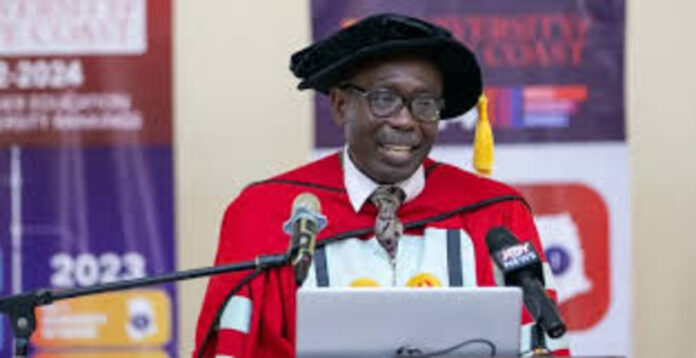The Ghana Education Service (GES) has cautioned candidates preparing for the 2025 West African Senior School Certificate Examination (WASSCE) to avoid relying on leaked examination questions, popularly known as apor.
Addressing a press conference, the Acting Director-General of the GES, Prof. Ernest Kofi Davies, urged candidates to prepare diligently, stressing that success will only come through hard work and integrity.
“God willing, tomorrow, August 5, we will begin with the WASSCE practicals. The theory papers will follow from August 20 to September 19. All measures to ensure a smooth process have been put in place. I want to caution candidates against any misconduct or reliance on foreign materials. Anybody caught will be dealt with,” Prof. Davies warned.
A total of 461,640 candidates are expected to sit for the 2025 WASSCE.
Prof. Davies also issued a strong warning to invigilators and supervisors, stating that anyone found engaging in examination malpractice would face immediate dismissal.
Addressing concerns over schools in conflict-prone areas such as Nkwanta SHS, Bawku SHS, Nalerigu SHS, and Zuarungu SHS, he assured the public that adequate security arrangements have been made to ensure an incident-free examination period.
“We want to assure all candidates and parents that this year’s WASSCE will be free of malpractice, and security measures are in place to ensure fairness and safety,” he added.
His caution comes in the wake of alarming statistics released by the West African Examinations Council (WAEC), revealing that a total of 146,309 WASSCE candidates were involved in examination malpractice over the past four years.
Out of 441,751 candidates in 2021, 10,386 were caught in malpractice. The figures rose to 29,291 out of 419,151 in 2022. In 2023, 44,586 out of 445,160 candidates were involved, while in 2024, a record 62,046 out of 457,554 candidates were implicated—representing 13.6% of the total.
Speaking at a seminar in Kumasi, the Acting Head of the Accra Section of WAEC’s Research Department, Kwaku Dankwa, described the trend as deeply worrying.
Source: Kodwo Mensah Aboroampa
ALSO READ:



